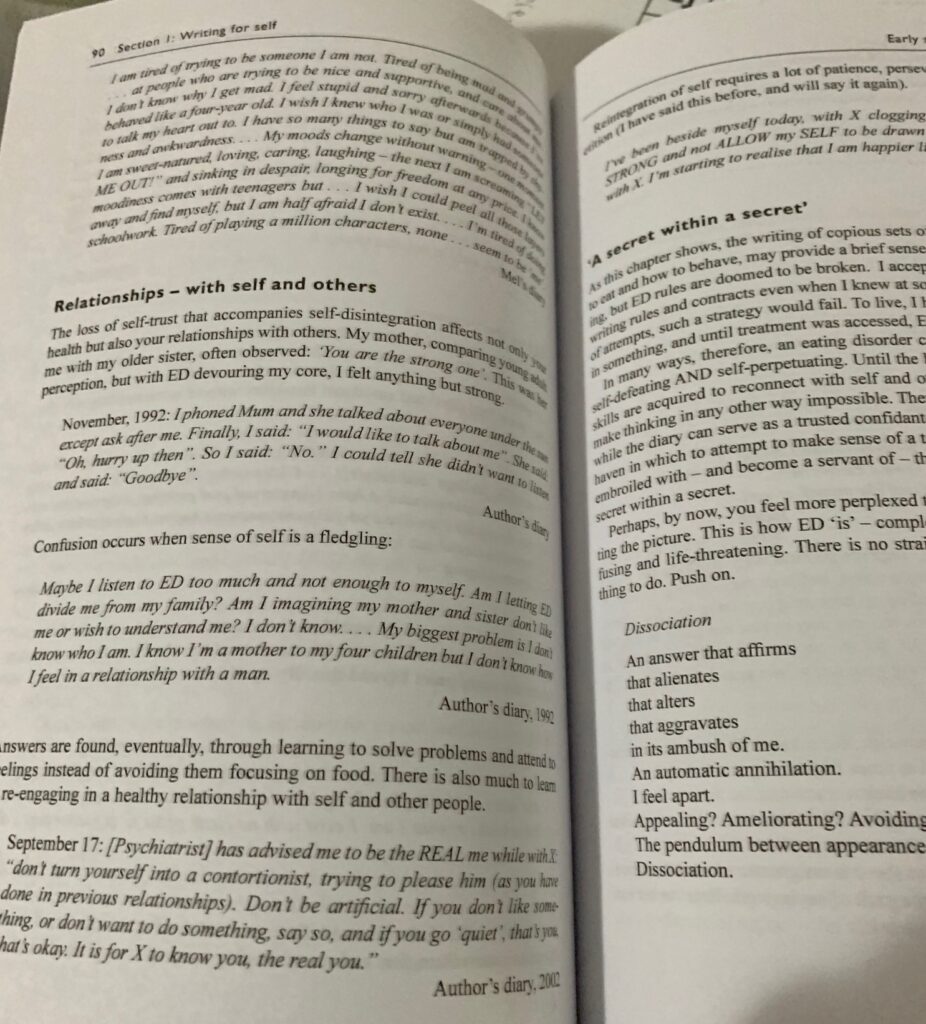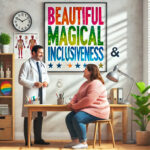Sharing your story – is now a good time?

Sharing your story – is now a good time?
Sometimes, sharing a secret with others we have never met, online, can seem easier to do than in a room with someone we have known all of our life. Stories can be shared in many ways: face-to-face, by letter or email, in mainstream media or on the Internet. Some online options allow anonymity while sharing thoughts and feelings publicly — but the rise of social media has taken participation to a new level.
The implications of sharing our story are discussed in my book Using Writing as a Therapy for Eating Disorders – The Diary Healer, with clinical psychologists, Kristine Vazzano and Ashley Solomon.
Just by ‘getting them out’, the thoughts and feelings that stem from an eating disorder (ED) may seem to lose their power, their scariness and control. There are important considerations, however, when sharing a story publicly.
The Internet is very, very accessible. Depending on when and how you share your story, and with whom, what you say may be helpful or harmful. Living with an ED is a very isolating experience, and I encourage the sharing of stories because, when safeguards are respected, the messages in these stories can help to reduce the power of the ED and provide insight and hope not only to the writer but also to many other people.
So, what safeguards will help produce the most beneficial outcome?
- Pause and think about why you want to share your story, and what parts you want to keep private.
- Is this the right time to share your story? What is your main motivation? The answer can depend on where you are in recovery. Is your healthy-self ready and able to write the story, or is your trigger-happy ED dominating your thoughts?
- Who do you want to read your story? Who is your target audience? Without care, offloading of thoughts and feelings may negatively affect a person who reads your story, or perpetuate triggers within yourself.
- Consider how you might feel five years from now if you share all your angry, upset and deeply private thoughts right now – it’s definitely good to release these bothersome thoughts and emotions onto the pages of your diary but, before sharing publicly, consider the impact on those you love. Most likely, you will decide that some things are best kept private, at least in the short term. Sharing in your diary and with your trusted therapist or mentor is the best approach when working through deep angst.
- When you have an ED, the voice of which is an incessant bully in your brain, you are not always able to think rationally or to consider the ramifications of your actions. Your story will differ, depending on when you tell it – that is, with the voice of your illness, or with your own healthy-self voice. If your ED voice is dominant, you can be duped. Therefore, I strongly recommend that you share your story with a trusted ED professional or trusted mentor, and seek their guidance, before sharing in the public arena.
Venturing from private to public online
Sharing your story with others can help meet a yearning for connection and belonging. ED support organisations like Butterfly and The Diary Healer website provide safe environments, which are welcoming, non-judgmental and accepting, for people with eating disorders while working on recovery.
A guideline to sharing
My suggestions for sharing your story go like this:
- First, write for yourself. You and you only. Let it all out in your diary. You are writing to yourself. Writing is healing!
- Second, discuss your story with someone you trust – your doctor, therapist, best friend, family member, minister of religion. Someone. Maybe show them extracts to help explain and emphasise what you are saying. This gives them opportunity to provide alternative interpretations that can challenge ED thoughts and help to strengthen your healthy-self. I know people whose lives have been saved because they courageously shared their diary with their doctor at a time when their ED had silenced them verbally.
- Third, if you wish to widen your circle and share your story with those close to you, such as family and friends, or your treatment team, rewrite your story with them as the audience in mind. This process, when undertaken with the person you trust, will help you to reflect and become an observer and interpreter of your ED experience thus far. In this way, with guidance from your trusted therapist or mentor, you will be helping your own self to heal. You will start to recognise rogue ED thoughts for what they are and use your writing skills to defuse and silence them.
- Fourth, if you wish to share with ‘everybody’ publicly, do another re-write, with this audience in mind. Again, share with a trusted treatment team member or mentor before releasing your story. This self-reflective and consultative process will further assist your healing journey.
Take home message
Story-sharing in a safe and supportive environment is beneficial for us all.





